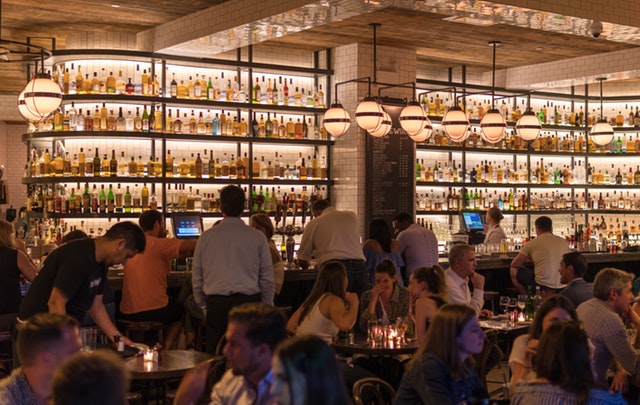If you suffer from hearing loss in San Diego and have ever tried to enjoy a nice meal at a restaurant, you have probably struggled. Restaurants are one of the noisiest public environments – and when you have trouble hearing, your experience can be downright unpleasant. It’s enough to make you want to stick to drive-throughs and value meals. Some people are asking whether restaurant noise might be considered a form of discrimination.
Hearing Aids Can Only Do So Much
One in every five people in California has hearing loss. The majority – about 90 percent – can be helped by hearing aids. But these devices, which amplify sounds so those with impaired hearing can communicate more effectively, do have their limitations in situations where there is a lot of background noise, such as restaurants. They have difficulty isolating individual sound sources and simply boost the volume of everything, making it difficult for hearing-impaired diners in San Diego to enjoy their meals.
Title III of the Americans With Disabilities Act was designed to protect people with disabilities from discrimination in all public accommodations. While the law does, of course, extend to restaurants, it isn’t clear whether hearing loss is considered a disability in the eyes of the law. This leave you with little recourse than to ask the staff to turn down the music – but your request often won’t (or can’t) be accommodated. Ashok Bajaj, owner of a Washington, D.C. restaurant called Rasika, explains, “When you go to a restaurant, you are dining with others; you are not just dining by yourself. Diners have to be mindful that, if you go into a restaurant with 100 seats, it is going to be noisy no matter what you do. Sometimes you get a loud table, and there is nothing you can control about it. We accommodate our guests the best we can. It is difficult for the restaurant to please everybody.”
There is little doubt that the noise level in restaurants can often be excessive. Tests show that average levels range between 75 and 85 decibels and can go even higher, exceeding 95 dB. That is comparable to a lawnmower and loud enough to cause hearing loss in as little as an hour. Even patrons with normal hearing are unable to enjoy that type of experience – and are at risk of developing hearing loss themselves! Blame it on a number of factors including poor acoustics, excessively loud music, open kitchens and large crowds of hungry Californians. People with other hearing disorders such as tinnitus and hyperacusis are also affected by noisy restaurants.
Taking Steps to Enjoy a Peaceful Meal
Unfortunately, unless you’re willing to file a civil lawsuit, you probably can’t force your favorite restaurant to fully comply with the law. The disability-rights angle of noise is slowly evolving, but most businesses focus on ensuring there are accommodations such as ramps and parking for patrons confined to wheelchairs. Even the Department of Justice admits that enforcement for hearing-related violations is basically nonexistent at this point.
This doesn’t mean you’re completely out of options. Your San Diego audiologist suggests trying a smartphone app that provides information on noise levels in area restaurants. Soundprint and iHEARu are two good choices. Look at online reviews through Yelp and Facebook for more information and choose off-peak hours when dining out. If your restaurant accepts reservations, request a quiet table away from the main action. Try dining during off-peak hours and, when making reservations, ask for a quiet table in the corner. If all your attempts fail, get your food to go.
Want more tips on dining peacefully with hearing loss? Give your San Diego hearing specialist a call.
